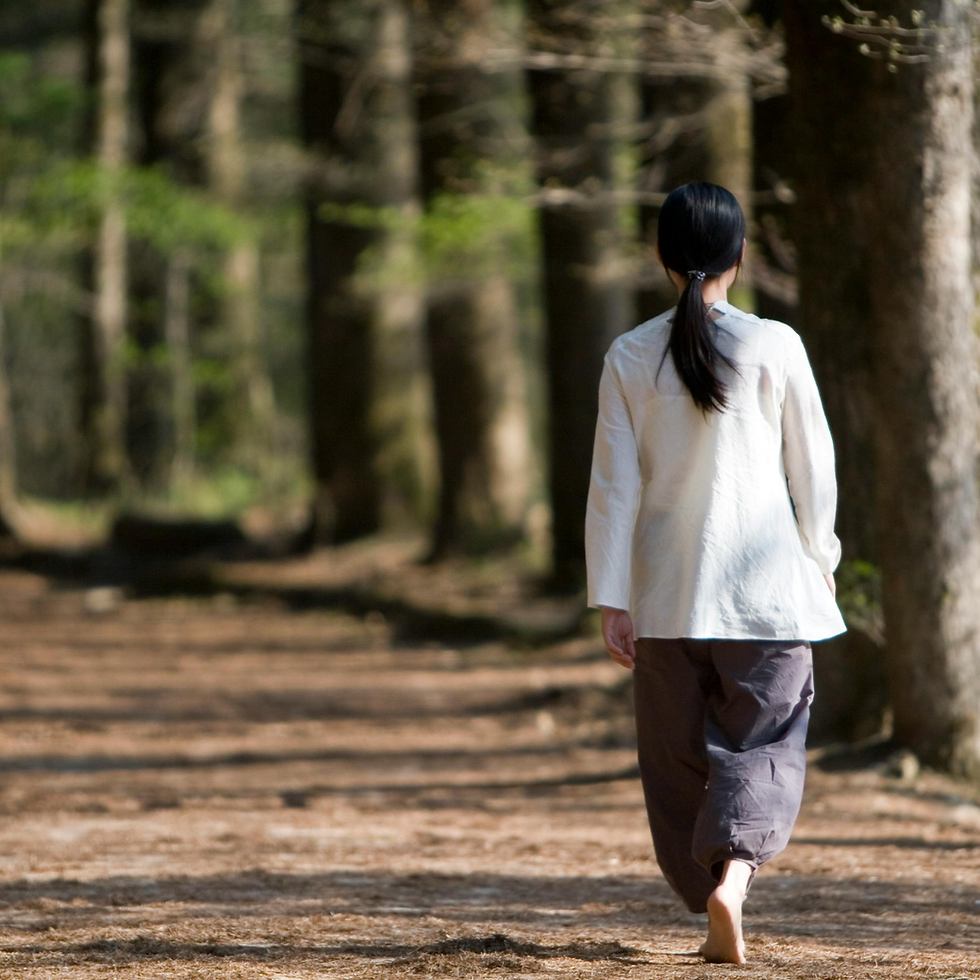Self Healing First: why personal development precedes service.
- Leanne Northwood

- Jun 2, 2025
- 4 min read

Personal development isn't selfish, it's necessary groundwork for meaningful service to others. When we prioritise our own healing and growth, we create a solid foundation from which we can effectively help others without burning out or causing harm.
The airline safety briefing offers a perfect metaphor: "Put on your own oxygen mask before assisting others." This isn't selfish, it's just practical wisdom. We can't help others breathe if we're gasping for air ourselves.
Our capacity to serve is directly proportional to our own wholeness. When we're struggling with unresolved trauma, limiting beliefs, or chronic stress, our service becomes compromised. We might project our issues onto others, offer help from a place of depletion, or use service as an escape from our own healing work.
Self-development creates the necessary awareness, boundaries, and resilience that effective service requires. It helps us recognise when we're helping versus when we're rescuing, controlling, or seeking validation. By understanding our motivations, we can offer cleaner, more sustainable support. This is so vital to understand.
This principle appears across various wisdom traditions. Ancient philosophies emphasise knowing oneself before attempting to change the world. Modern psychology highlights how unhealed helpers often perpetuate harm despite good intentions. While we know reiki can cause no harm in our humanness we can sometimes hurt others unintentionally with our words or actions.
Self-healing isn't a one-time achievement but an ongoing practice. As we grow, our capacity to serve expands. The relationship is cyclical, service often reveals new areas for personal growth, which in turn enhances our service.
We are all in various stages of healing during this human incarnation. Some people use the opportunity to work through issues and ignorance and others don’t. We all cope in different ways. When we are called to do healing work we need to be aware. Unhealed helpers often cause unintended harm despite their best intentions. Some examples are:
The Rescuer's Trap: A therapist with unresolved abandonment issues might become overinvolved with clients, creating dependency rather than empowerment. Their fear of being unnecessary prevents them from celebrating client independence, subtly encouraging continued reliance.
Projection in Action: A teacher who hasn't processed their own failure experiences might push students toward excessive caution, projecting their unresolved fears rather than supporting appropriate risk-taking. Their advice becomes more about soothing their own anxiety than serving the student's growth.
Control as "Help": A manager with unaddressed perfectionism might micromanage team members under the guise of support, ultimately stunting their development and undermining confidence. The unhealed need for control masquerades as helpfulness.
Emotional Leakage: A healthcare provider carrying unprocessed grief might unconsciously withdraw emotional presence from patients facing loss, precisely when connection is most needed. Their unhealed wounds create blind spots in their care.
Validation-Seeking Service: A volunteer motivated primarily by needing external validation might prioritise visible, praise-generating activities over what recipients truly need, making their service more about themselves than those they serve.
When we are drive by our own unresolved needs, fears, or wounds, we cannot fully attune to others. True service creates space for the other person's autonomy and empowerment rather than unconsciously fulfilling our own emotional needs. We can see these examples play out in life and there is no judgment here, these are our wounds and often we aren’t conscious of how we are projecting.
So, what are some practices for balancing our self-development and service?
We can try;
Regular Self-Reflection by establishing a consistent practice of examining your motivations for helping. Journal about questions like: "What needs of mine are being met through this service?" and "Where might I be overstepping boundaries?"
Professional Supervision by engaging with mentors or supervisors who can offer perspective on your helping patterns. Regular case discussions with trusted colleagues create accountability and insight. For reiki practitioners this could be meeting with your teacher or attending groups with other reiki practitioners.
Personal Therapy by committing to your own therapeutic process. The deeper your self-understanding, the less likely your unhealed aspects will unconsciously drive your helping relationships. Developing self-awareness have huge benefits in all aspects of our lives.
Mindfulness Practice by developing present-moment awareness through meditation or other mindfulness practices. This helps you notice when you're being triggered or acting from old wounds rather than responding to what's actually happening.
Boundary Setting by practicing identifying and maintaining healthy boundaries. Notice where you tend to overextend and develop clear limits that honour both yourself and those you serve.
Self-Compassion Work by cultivating kindness toward your own imperfections and healing journey. This reduces the likelihood that you'll project unrealistic expectations onto others as well as truly being empathetic.
Somatic Awareness by developing the ability to track physical sensations that signal when you're acting from unhealed places. Our bodies often recognise when we're off-centre before our minds do.
Energy Management by prioritising practices that replenish your physical, emotional, and spiritual resources. Sustainable service requires ongoing renewal.
When we commit to our own healing journey, we don't just become better helpers, we transform our understanding of what helping truly means. Rather than fixing others from our own woundedness, we learn to stand alongside them in authentic presence, creating space for mutual growth and genuine empowerment.
The most profound service often comes not from doing more, but from being more whole.
.png)



Comments